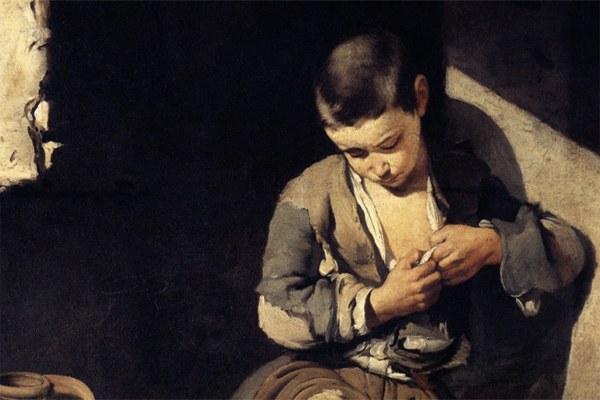
Paris. (Photo: Wikimedia Commons)
As I write the last column in this series on the meaning and mystery of the human person and prayer, I think that reflecting on the topic has been a very important learning experience for me.
Probably I could make a similar comment about many columns I write but this series seems special to me. Perhaps that is because it forced me to tie together what I have learned in reading and teaching the philosophy of the human person for many years with what I believe about prayer. As a Catholic, I have always believed in the power of prayer but certain truths about the mystery of the human person and the mystery of prayer seemed to become more important and clearer to me as I wrote the series.
In his marvelous book “Altogether Gift: A Trinitarian Spirituality” (New York, Maryknoll: Orbis Books, pp. 143) Michael Downey writes brilliantly and beautifully about God’s presence in our lives and prayer as the response to that presence. Both God’s presence and our response can reveal the meaning of love to us. Reflecting on Love and the Holy Spirit, Downey writes the following:
“And it pours itself into the human heart, that land of deep and lasting desire, the land of longing, of an absence aching for light, for life, for love. The heart is the region of wound and wisdom, the Spirit’s dwelling within, the place from which Love speaks Love’s name, ‘Father’, in and through the Spirit, Love’s Breath. This is the Spirit: God’s life pouring itself forth, speaking within our hearts, with hope in the midst of darkness and travail.
“The Cross of Christ is the unsurpassable promise of the presence of the divine amidst human reality. Human life, all of it is the precinct of epiphany of God’s showing, of God’s constant speaking and breathing. But nowhere is this presence more resplendent than in our utter poverty.” (p.15)
I love Downey’s vision of human life as “the precinct of epiphany — of God’s showing.” I believe deeply that the world is fi lled with the grandeur of God, that every creature is good and beautiful and a kind of message from God to us. The more time I spend studying God’s creation, the more awe-inspiring it seems. Its beauty can stop us in our tracks and elicit from us an almost in-
voluntary “Wow!”
Unfortunately, my sense of perception is so poor in that I just don’t notice what is right before my eyes. For example, I can be teaching a philosophy course at St. John’s University for three months and at the end of the semester I cannot announce from memory how many windows are in the classroom, even though I have spent hours in the room. Occasionally, I try an experiment in class to emphasize how important sense knowledge is and how inadequate my sense observations are. After lecturing for about half an hour, I suddenly put my hands over my eyes and announce that although I have been looking at the students for half an hour, I cannot say what any person is wearing, not even those sitting in the front of the classroom just a yard or two away from me. For years, I thought that I could easily read students’ facial expressions.
For example, I could tell from their facial expressions who was interested and who was bored. Now, I wonder about that experience and the judgments I make based on what I see.
There is some similarity between what philosophy and religious faith can tell us about the mystery of the human person. Philosophy can reveal to us that the two deep needs of every human are the need to be loved and the need to love. Individuals can deny that they have these two needs but if they do they are making a very serious error. A person can refuse to love and a person can deny the need to be loved but that really would be a recipe for disaster.
I think that the two most profound philosophical truths about the human person are that every person is unconditionally loved by God and every person is called to be a lover.
Christian faith does not deny any philosophical truths but it proclaims a message about the human person that only God, Who is Love, could conceive. I think it was Elizabeth Barrett Browning who wrote that God’s gifts put man’s best dreams to shame. One Christian theologian facetiously said that Christianity could not be true because if it were true, it would be too good to be true! The Incarnation of the Son of God has deepened the meaning of all reality.
Father Lauder is a philosophy professor at St. John’s University, Jamaica. He presents two 15-minute talks from his lecture series on the Catholic Novel, every Tuesday at 9 p.m. on NET-TV.
